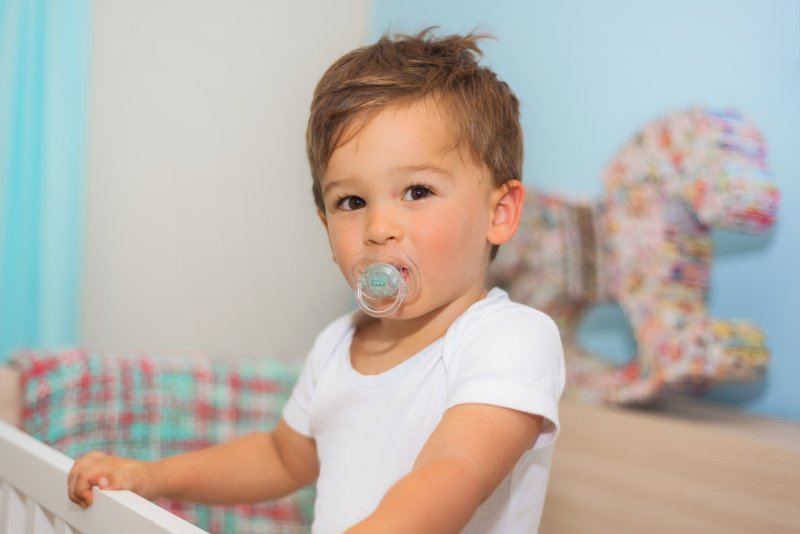
Parenthood comes with a lot of decisions and advice – much of it unsolicited and unnecessary. While some will tell you to never give your baby a pacifier, others will express how helpful it can be to have a few on hand, especially when your little one becomes fussy. While pacifiers can prove beneficial during the infancy stage, there are also potential problems that can arise if they continue to be used once your child is a toddler or nearing school age. Read on to learn what pediatric dentists are saying and ways you can help your little one say goodbye to their binky once and for all.
Pacifier Use: What Kind of Problems Can Arise?
While your child is still a baby, a pacifier can actually be helpful in certain situations, such as taking your little one on a plane, reducing fussiness, or lowering the risk of SIDS (sudden infant death syndrome). However, continuing to use one as they grow older will put them at risk for many oral health problems, including:
- Bite Misalignment: Whether it’s a crossbite or open bite they develop, prolonged pacifier use can cause their upper front teeth to stick out. This makes it harder for them to close their mouth, which can also have a negative effect on their breathing as they get older. It can also cause the roof of their mouth to change shape.
- Cavities & Gum Disease: If you tend to dip your child’s pacifier into sugar or any other sweet solution (i.e., fruit juice, carbonated beverages, etc.), this can cause cavities to form. As the sugar sits on the teeth, it allows bacteria to breed, resulting in plaque and tartar attacking the tooth enamel and gum tissues.
- Ear Infections: Your child may develop one or more ear infections the longer they use a pacifier. The reason is that the sucking motion can create a blockage in the ear canal, making it easier for an infection to occur.
Effective Ways to Help Stop Pacifier Use
Depending on how long your child has been using a pacifier, the process of getting them to stop may or may not be difficult. There are a few effective ways to curb this non-nutritive habit, but you are welcome to talk to your child’s pediatric dentist for additional recommendations:
- Switch out their pacifier for another comforting object, like a stuffed animal.
- Attempt to determine why your child wants a pacifier and make changes so that the desire lessens over time.
- Offer alternative teething objects, such as a clean, cold washcloth or chewing toy to ease discomfort.
- Speak encouragingly and positively when they do not use their pacifier throughout the day.
Giving up the pacifier may be hard for both you and your little one. By doing so, though, you’ll not only help them learn new and healthier ways to self-soothe, but you’ll also give them a chance for better oral health in years ahead.
About the Authors
At Sprout Dentistry for Kids in Allen, Dr. Justin Chan and Dr. Sage Yoo care about the habits your little ones are practicing at home. As board-certified pediatric dentists and fathers, they understand the challenges non-nutritive habits can present. This is why they are pleased to provide useful techniques and tips to stop pacifier use before it becomes a serious oral health problem. If you need help in this area, visit our website or call (469) 663-0098.
